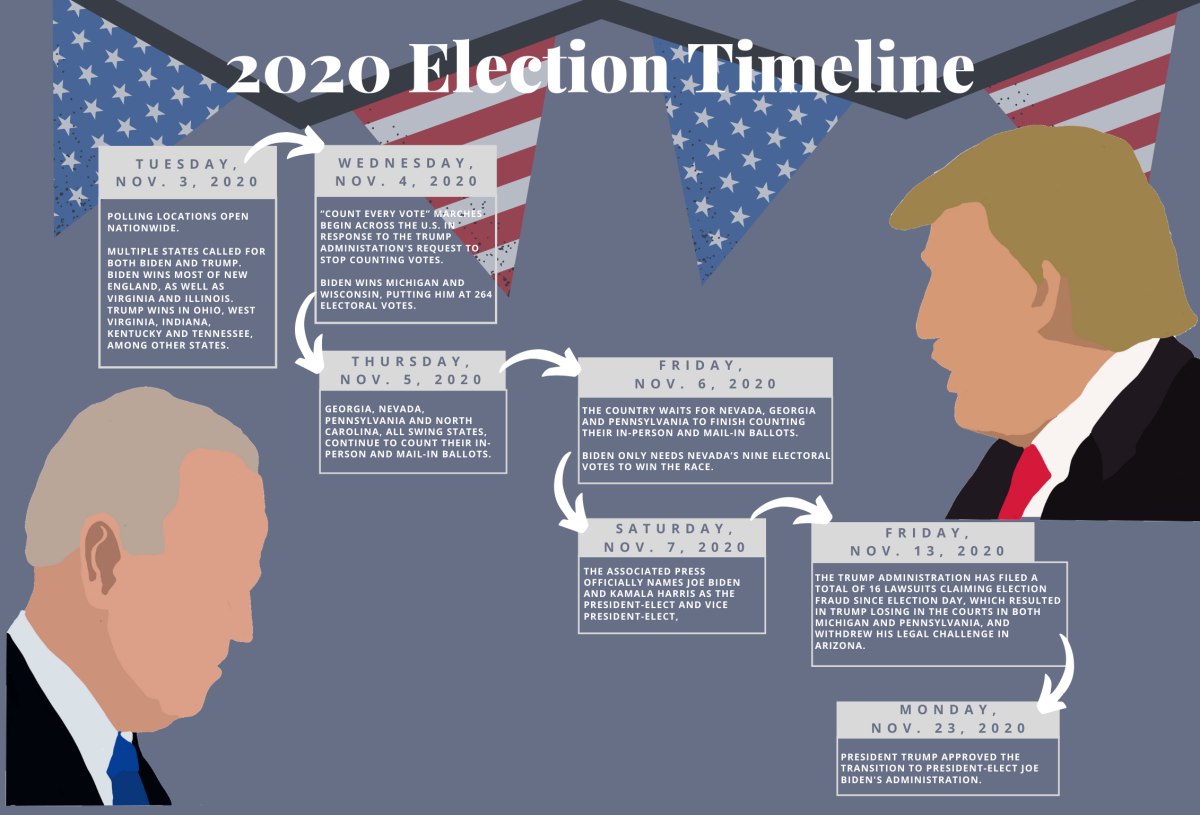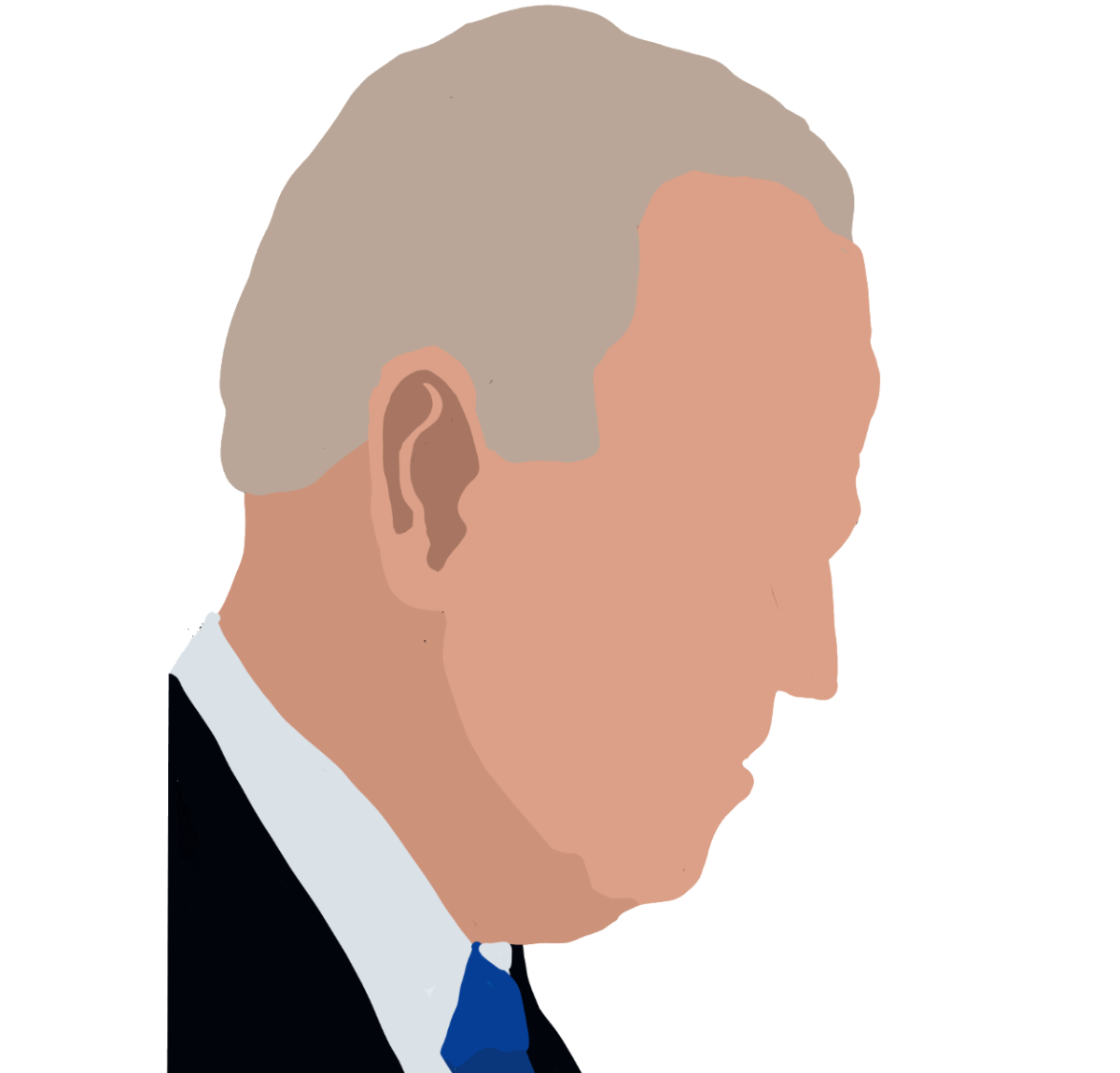With Election Day on Nov. 3 quickly approaching, people are experiencing increased feelings of stress, anxiety and uncertainty. Luckily, there are strategies to help manage and cope with these uncomfortable emotions.
Due to the uncertainty of the election, stress can be exacerbated, according to Greg Nicholls, Ph.D., director of Counseling and Psychological Services (CAPS). He wrote in an email to The Hawk that he expects an increase in students seeking services from CAPS.
“In 2016 we saw a significant increase in the number of students seeking counseling in our center following the election,” Nicholls wrote. “For many college students, particularly students of color, the result was a shock and quite dispiriting.”
Susan Clampet-Lundquist, Ph.D., professor of sociology, said this election year is unlike any she has seen before.
“We have a president right now who has made his platform of supporting white supremacy, his platform of wanting to get rid of the Affordable Care Act, his platform of wanting to further marginalize immigrants, very clear,” Clampet-Lundquist said. “We’ve got a lot of knowns going into this election about what one side is going to offer us, and I think that makes the anxiety [worse].”
Josephine Shih, Ph.D., professor of psychology, wrote in an email to The Hawk that in order to manage stress, it is necessary to “diagnose the source of the stress.”
“People experience stress from a variety of sources, some within our control, some not within our control,” Shih wrote. “It is helpful to figure out what is within our control and what factors may be exacerbating the stress, so that we can manage the stress more directly and test out strategies that help us feel better.”
Clampet-Lundquist said another way of regaining control over the situation and reducing stress is to vote, and vote as early as you can.
“[Voting] gives you a little bit more of a sense of control, even though there’s so much that you can’t control,” Clampet-Lundquist said.
Another reason the election exasperates stress, according to Nicholls, is because of all the chaos it causes in the media.
“Breaking news with alarming headlines is a 24/7 phenomenon, almost daily in today’s world,” Nicholls wrote. “We are overwhelmed with information, much of it coming from media and social media which we have a hard time detaching from because we fear we will be missing out.”
According to Nicholls, there are studies proving excessive use of social media, or more than 12 hours per week, is linked to an increased risk of experiencing mental health issues, such as anxiety and depression.
Clampet-Lundquist said a way of managing stress caused by what is in the news is to avoid doom scrolling.
Doom scrolling is when one continually scrolls through tragic news, exposing themselves to information that can heighten stress.
Clampet-Lundquist recommends avoiding doom scrolling before going to bed and not looking at a phone or the news for at least 30 minutes before going to sleep. However, she said it is important to be informed about what is going on in the world.
“Choose an issue or two that you really care about, and dig in deep,” Clampet-Lundquist said. “Learn more about that issue, and learn more about something that you can do to try to effect change on that issue.”
Shih wrote that it is important to figure out which stress management strategies work best for you in order to manage feelings of uncertainty.
“It may be setting aside time to exercise or time to connect with friends,” Shih wrote. “People may like mindfulness practice, breathing exercises, listening to music, etc. more or less than others.”
Grace Muldoon ’22 said she manages her stress by running.
“It’s super helpful to take the time out of your day—even if it’s just five minutes—to focus on yourself and do something that you really enjoy,” Muldoon said.
Nicholls wrote that another way to relieve stress is to understand how our minds work.
“When we are stressed and anxious our thoughts tend to be worries and fears and so often distort reality,” Nicholls wrote. “Our thoughts tend to represent the ‘worse case scenario’ and the problem is we believe what they are telling us, especially in the moment.”
Learning to be skeptical of what our minds tell us during times of stress and anxiety allows us to detach from negative thoughts, reducing the power they hold over us, Nicholls wrote.
“Studies show anxiety can be contagious,” Nicholls wrote. “A roommate’s anxiety can lead to an increase in one’s level of anxiety. This seems to be especially the case for women and girls, although men and boys are not immune.”
Nicholls recommended trying to stick to the basic elements of good self-care, such as having a healthy diet, avoiding drinking alcohol to excess, maximizing sleep as much as possible and making sure to get out of the house or dorm to do something physical.
Beyond these tips, Nicholls recommended scheduling a session or two with a CAPS counselor.
“We listen deeply to what is troubling students and provide strategies to help them cope and solve their issues,” Nicholls wrote.
To schedule an appointment with Counseling and Psychological Services (CAPS) at St. Joe’s, call 610-660-1090.










































